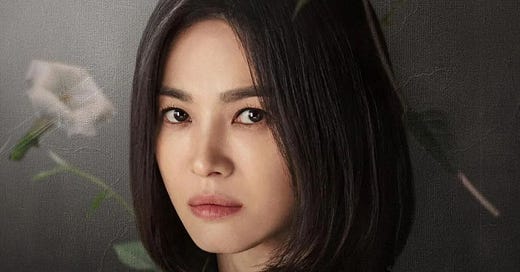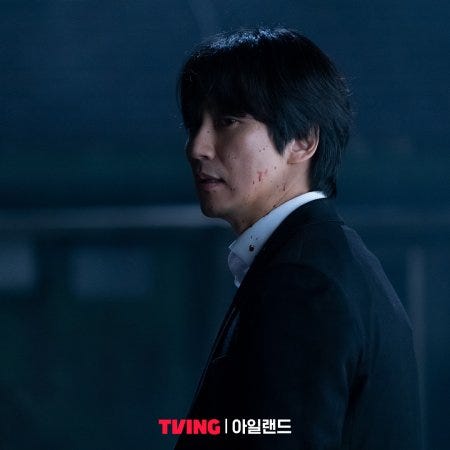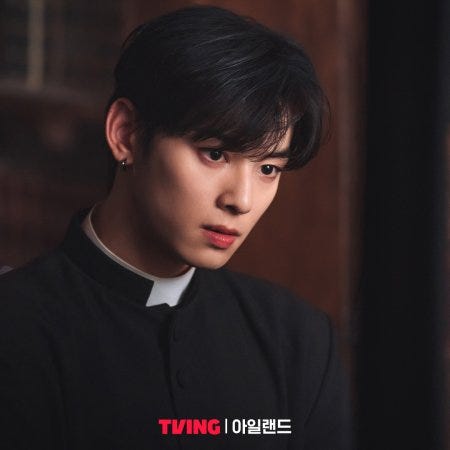What’s this ridiculous industry fad of splitting dramas into dual seasons that has infested the viewing landscape? It begs the question as to whether the streaming platforms in question are financially incentivized to do so due to huge losses in subscriptions. In the case of The Glory, there seems to be at least a two-month waiting period. I watched two episodes of that and then stopped myself as it occurred to me that I’d have to wait till March before the second “season” episodes are dropped for public consumption. By then I would have to do a refresher to recall important plot points. There are just far too many K dramas now and there’s only so much a single person can get through.
The Glory, if you don’t know already, is essentially a revenge drama that seems to take a leaf or two out of The Count of Monte Cristo. Although that pretentious attempt on my part to make a a literary reference probably says nothing because most revenge stories are beholden to Dumas’ template in some fashion. Song Hye-kyo is Moon Dong-eun a highly motivated young woman who was a victim of school violence. She was specially targeted by a group led by a student known as Park Yeon-jin born out of the self-styled elite class that we know and love so well. The set-up is straightforward but scenes of bullying which dominate the first episode send shivers up and down one’s spine. With no parental support, Dong-eun leaves school and vows to avenge herself on her tormentors with most of her wrath directed at Park Yeon-jin (Im Ji-yeon), who is now a household name in weather broadcasting. Her revenge plot seems to be years in the making. She begins by earning her keep in manual labour while studying for her high school certificate before working her way towards her teacher qualifications.
Song Hye-kyo is generally adequate in the role as the morose/brooding female lead and she is well served by a gripping script. The horrors that she experiences as a schoolgirl haunts her and guarantees that the audience will be behind her while she pits her wits against highly unpleasant foes. Even as adults, entitled privileged children are merely older versions of themselves. Along the way, she encounters Lee Do-hyun’s medical intern who is intrigued by her and he offers to teach her to play Go. This is an early step in the long road of executing The Plan because she has her eye on Ha Do-young (Jung Sung-il), the husband of her arch enemy Park Yeon-jin. I imagine it is her intention to rip the proverbial mask off Park Yeon-jin whose public persona is that of a devoted wife and mother while behind the scenes she’s conducting extramarital liaisons with former schoolmate, Jeon Jae-hoon (Park Sung-hoon) on the side.
It has been often said that “revenge is a dish best served cold” and I’m inclined to agree especially it involves an elaborate plot directed at half a dozen individuals who quite frankly deserves what’s coming to them. Two episodes in and I sense its addictive quality but that’s as far as I’ll go with this now because it’s obvious that this is the kind of show that has to be binge-watched once everything’s available. I would hate to be left hanging on the edge of the cliff after 8 episodes. I’ve certainly heard nothing but good things about it so I’m pretty pumped for it when March comes around.
Island turns out to be the uninspiring drama that its title implies. I can only speculate that this wobbly script got greenlit only because Amazon wanted in on an already oversaturated Kdrama market. It may seem hasty and unfair to cast judgment on this when only half of it has been made available to the viewing public so far but as I indicated in a previous post the cracks and the flaws had already surfaced early on. What’s also more baffling is that an actor of Kim Nam-gil’s calibre would take on a role that sees him mainly in smouldering poses across the bleak but mesmerizing landscape of Jeju Island. For a show supposedly rooted in the fantasy horror genre, the world-building is oddly thin on the ground… almost as if it’s an afterthought or window dressing. The local lore merely provides justification for the appearance of godlike humans and monsters in a 21st century South Korea with WiFi and mobile phones but it doesn’t really animate the characters to any large extent. Truth be told the three leads are largely reactive here. Until around about Episode 6 there’s really no sense of urgency about an impending apocalypse. The villain(s) should have been introduced much sooner and there’s just too many scenes expending unnecessary tv oxygen that just aren’t relevant to the story.
There’s no doubt that there’s a half decent story somewhere inside this misguided project that needed a screenwriter with a firm, experienced hand to make this the better show that it could have been. Not all the fault lies with the writing because a PD that cared enough about this project would know what to do with the fillers, the editing and the pacing.
The actors do what they can with the half-baked script. Cha Eun-woo is probably the most fortunate because his priestly character, Yohan, is undeniably the best written and actually has something of a growth arc in this short period. The cocky Italian based exorcist is taken down a peg or two in the final episode when he realises that the whole supernatural good vs evil characterisation of what’s going on doesn’t fall along simplistic line when someone has skin in the game. Lee Da-hee is the worst served because nobody tells her anything of importance for about 5 episodes so she’s groping around in the dark as people around her are dropping like flies. It’s boring when she’s supposed to be “the chosen one” and everybody’s waiting around for her to “wake up” and regain her abilities. To be fair she’s not as obnoxious as she was at the start but the whole thing about her being a temporary teacher at a local high school isn’t utilized as well as it could be.
Bulgasal had its own share of problems but at least the characters were properly fleshed out and relatable. They formed a makeshift family out of necessity and there were many heartwarming moments among them. But in Island, the continuing antagonism — unnecessary I might add — among the leads just doesn’t lend itself to any real emotional investment in the characters especially if Van insists on being distant and aloof. Incidentally it’s not just the team that lacks cohesion but the story elements too. There are these genuinely good moments but not only are they are few and far between but they feel disconnected with the larger story.
Nonetheless Episode 6 does feel like a major shift in the narrative which means that in all likelihood the audience was made to sit through 5 episodes of a prolonged set-up which in turn means that most of this first season was pretty much a prelude. This would go some way to explaining the clunky “idiosyncrasies” of the “first season”.
All of Us Dead. I felt like it would be preferable to be eaten by zombies after two hours of this. Saw this with the second child for two episodes. It was all I could stomach without wanting to hurl something at the screen in a fit of exasperation. So much gut-wrenching stupidity in the middle of a world-changing existential threat. It’s safe to say that I wasn’t the target demographic for this.





